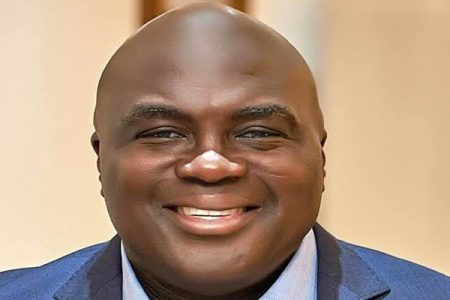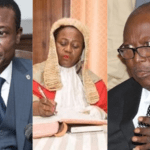The Chief of Staff, Julius Debrah, has ordered the annulment of all public sector appointments and recruitments made after the December 7, 2024, general elections.
The directive, issued to all heads of government institutions, cites non-compliance with good governance practices and principles as the reason for the decision.
According to the official communication, last-minute appointments contradict the government’s stance on end-of-tenure recruitments.
“Consistent with government pronouncements in relation to near end-of-tenure appointments and recruitment, I wish to bring to your attention that all appointments and recruitment made in the Public Services of Ghana after 7th December 2024, are not in compliance with established good governance practices and principles,” portions of the letter stated.
Immediate action required
Heads of government institutions have been directed to take immediate steps to annul these appointments and submit a comprehensive report detailing actions taken to the Office of the Chief of Staff by February 17, 2025.
“Your cooperation in this matter is highly appreciated,” the directive concluded.
The controversy of midnight appointments
Midnight appointments have long been a contentious issue in governance worldwide, with many democracies implementing legal and procedural safeguards to maintain accountability and fairness during transitions.
In Ghana, past administrations have engaged in last-minute decisions that have sparked debate.
In 2009, outgoing President John Agyekum Kufuor approved the Single Spine Salary Scheme on the eve of his departure, significantly increasing public sector wages.
Similarly, after the 2016 elections, outgoing President John Dramani Mahama made multiple appointments, increased allowances for national service personnel, initiated new projects, and signed various contracts in the final days of his administration.
Critics argue that such last-minute decisions can tie the hands of incoming governments, leading to governance challenges. However, supporters maintain that an outgoing president’s mandate remains in force until midnight on January 6, the official end of tenure.
Calls for legislative reforms
The increasing frequency of midnight appointments has fueled discussions on the need for regulatory reforms.
The Presidential (Transition) Act (PTA) of 2012, which was designed to ensure smooth presidential transitions, did not specifically anticipate this issue.
Experts argue that amending the PTA to address such practices would help curb last-minute governmental decisions, ensuring a more transparent and accountable transition process.
Global perspectives on midnight appointments
Midnight appointments are a global concern, with many countries instituting legal measures to regulate last-minute government actions.
In the United States, for instance, incoming administrations often issue executive orders to reverse or halt policies enacted by their predecessors in their final days.
Other countries have also developed policies to restrict last-minute appointments to ensure continuity and fairness.
- Have we reaped the whirlwind? - 19 April 2025
- Fighting cocaine with the cross - 18 April 2025
- Galamsey, Cocaine: of truths, errors and the priest - 18 April 2025

